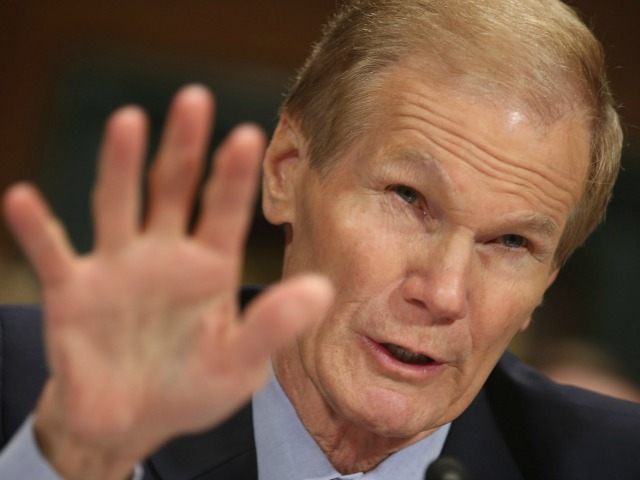Republican Sen. Jeff Sessions (R-AL) and Democratic Sen. Bill Nelson (D-FL) have introduced bipartisan legislation that would cut the annual number of H-1B foreign-worker visas by 15,000 and allocate the visas to the highest-paying employers.
According to the bipartisan pair, the legislation titled the “Protecting American Jobs Act” (S.2365), will open up job opportunities for American graduates in various skilled jobs.
“3 in 4 Americans with STEM degrees do not have STEM employment: there is a huge surplus of talented American labor being bypassed, displaced or even forced to train their foreign replacements,” Sessions said in a statement Monday.
According to Sessions the legislation will protect workers from system abusers and create more jobs for Americans.
“Too often, the special interests direct the legislative agenda; this legislation is the kind of positive reform that should be embraced by both parties on behalf of all U.S. residents,” the Alabama lawmaker said.
The move to tighten up the H-1B visa program follows recent allegations of abuse by companies like Disney and Southern California Edison, in which American workers were laid off and made to train their foreign replacements.
“By cutting the number of visas available each year and requiring those visas be given to the highest-wage earners first, this bill directly targets outsourcing companies that rely on lower-wage foreign workers to replace equally-qualified U.S. workers,” Nelson said.
The adjustment would reduce the number of H-1B white-collar visas given to companies each year from 65,000 to 50,000. Another 20,000 visas are annually offered to businesses to hire foreign graduates of U.S. post-graduate schools.
Sessions has also developed a H-1B reform bill with GOP 2016 candidate Sen. Ted Cruz. GOP Senator Chuck Grassley has another reform bill with Democrat Sen. Dick Durbin.
Howard University Professor Ron Hira, an expert on the H-1B visa system, added that it is a “myth” that there is a shortage of American tech workers available to U.S. companies.
“[T]he reality is far different: the government currently allocates most H-1B visas to foreign workers with ordinary skills to take jobs that could easily be filled by an abundant supply of domestic workers,” he said in a statement. “Large outsourcing firms exploit loopholes in the program by flooding the government with applications in order to bring in H-1B workers who are cheaper than Americans.”
According to Hira, more than 80 percent of H-1B visas are granted to workers being paid less than their field’s average wage.
“Many of those H-1B workers have lower skills than the American counterparts they are going to replace, and the American workers often have to train their H-1B replacements. Instead of giving visas to foreign workers with ordinary skills, this bill would allocate the visas only to the most highly skilled foreign workers – making it more difficult for employers to abuse the program.”
Hira further compared the bipartisan H-1B to the I-Squared bill, arguing the former is more effective.
“By contrast, the I-Squared bill moves the cap in the wrong direction, effectively tripling the number of H-1B workers, and will expand H-1B abuse,” he said. “It expands the egregious H-1B abuse of cases like Disney, Catalina Marketing, Southern California Edison, where American workers were forced to train their lesser-skilled and cheaper H-1B replacements. Further, the biggest beneficiaries of I-Squared will be the IT outsourcing companies that replace Americans with cheaper H-1Bs. The losers from I-Squared will be American workers and students who will be replaced, denied positions, and have their wages undercut.”

COMMENTS
Please let us know if you're having issues with commenting.